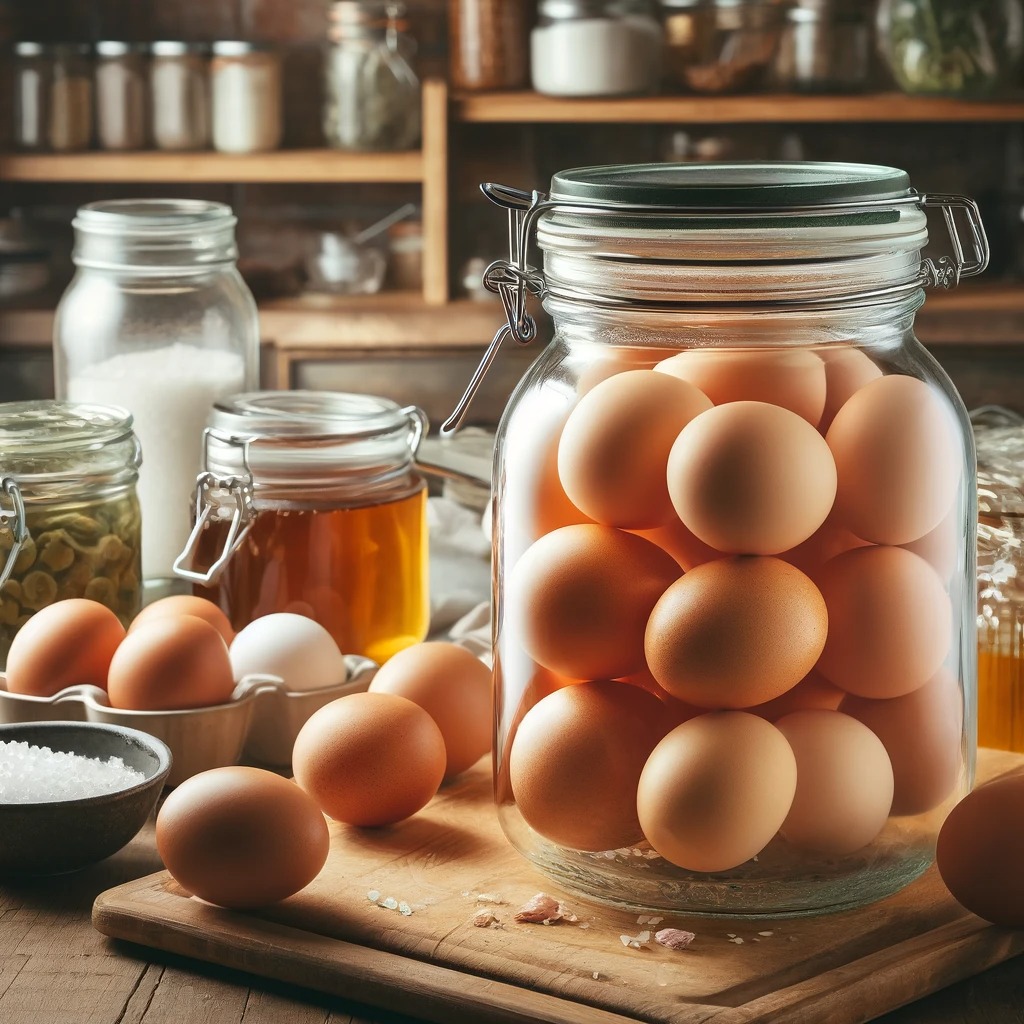ADVERTISEMENT
How Long Do They Last?
Properly stored in the water glass solution, these eggs will remain fresh for up to two years. When you’re ready to use them, just crack the eggs and cook them as you normally would. These eggs will still be good for baking, cooking, or scrambling.
2. Lime Water Preservation Method
Another effective method for preserving eggs long-term is the lime water method, which involves using slaked lime (calcium hydroxide) dissolved in water. This method works similarly to water glassing, but it’s a great alternative and can be more cost-effective for those who don’t have access to sodium silicate.
Ingredients & Supplies:
- Fresh unwashed eggs (not cracked)
- Slaked lime (calcium hydroxide)
- Non-chlorinated water (boiled and cooled)
- A sterilized jar (large enough to hold the eggs)
Step-by-Step Instructions:
- Prepare the Jar: Sterilize a clean, dry glass jar with a tight-fitting lid. Again, you can use mason jars or any jar with an airtight seal that will accommodate the eggs comfortably.
- Prepare Lime Solution: Mix 1 tablespoon of slaked lime per 1 quart (4 cups) of water. Stir well until the lime is completely dissolved. This solution will create a safe and protective environment for the eggs.
- Place the Eggs in the Jar: Gently place your fresh, unwashed eggs into the jar. Take care to place them gently so that they don’t crack.
- Cover with Lime Water: Pour the lime solution over the eggs, ensuring they are fully submerged. As with the water glass method, leave a bit of space at the top of the jar for expansion.
- Seal the Jar: Close the jar tightly with its lid. Store the jar in a cool, dark, and dry location, such as a pantry or basement. The eggs should be kept at a temperature of about 50–60°F (10–15°C) for the best preservation results.
- Check Periodically: Like with the water glass method, make sure the eggs stay fully covered by the lime water solution. If needed, add more solution over time.
How Long Do They Last?
Eggs stored using the lime water method can last for up to two years, but it’s recommended to use them within a year for the best quality. When you’re ready to use them, crack them open, and you’ll find that they are still in great shape for cooking or baking.
Important Tips for Successful Egg Preservation
- Use Fresh Eggs: Always use fresh, unwashed eggs for preservation. Unwashed eggs have a natural protective coating (the “bloom”) that helps to keep bacteria out and moisture in, making them perfect for preservation.
- Avoid Cracked Eggs: Only use eggs that are in perfect condition. Cracked eggs will not preserve well, as bacteria can easily enter through the cracks.
- Proper Storage: Ensure that eggs are stored in a cool, dry, and dark place. Exposure to heat or sunlight can reduce their shelf life.
- Test Before Use: If you’re ever unsure about the freshness of an egg, perform a simple float test in water. Fresh eggs will sink to the bottom, while bad eggs will float.
Conclusion
Preserving eggs for long-term storage is a great way to ensure you always have fresh eggs on hand, whether for emergencies, seasonal abundance, or just convenience. With these two methods—water glassing and lime water preservation—you can safely store eggs for up to two years. Both techniques are easy to follow, cost-effective, and yield excellent results. Give them a try, and you’ll be able to enjoy fresh eggs anytime you want, even when they’re not in season!
ADVERTISEMENT
